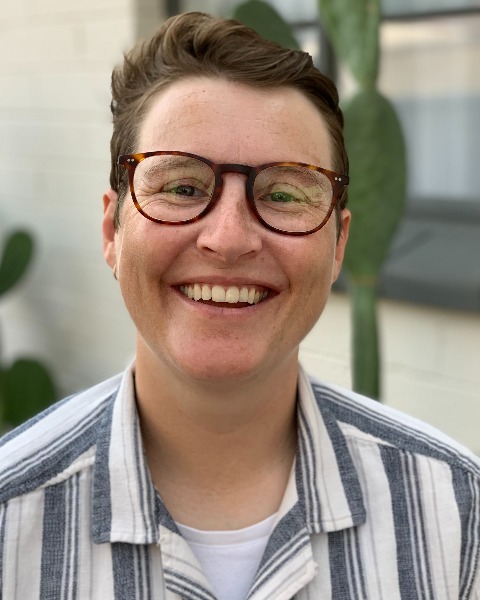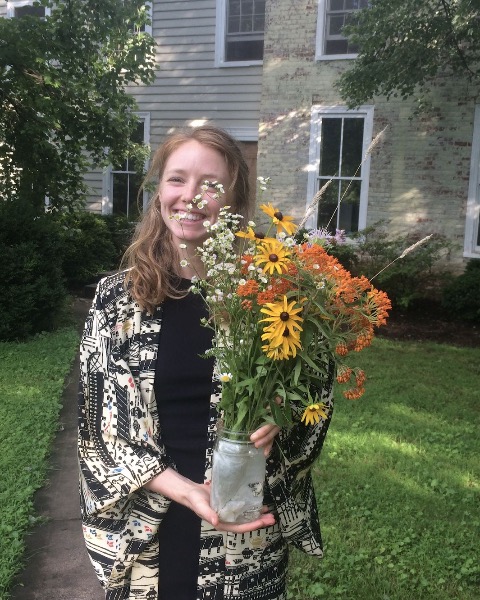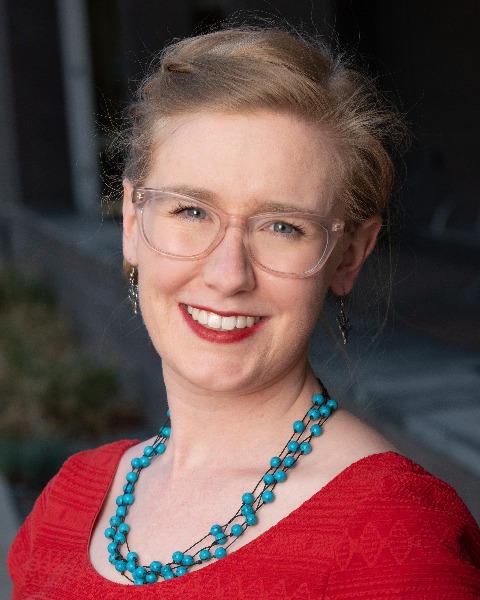Organizational Learning & Evaluation Capacity Building
Creative and engaging strategies to promote evaluation capacity-building in Cooperative Extension
-
Md
Madeleine deBlois, Sc.D. (she/her/hers)
Research Scientist
University of Arizona
Tucson, Arizona, United States -
RL
Rachel Leih, MPH, MEd
Research Professional II
University of Arizona, United States -

Terrace Ewinghill, ABD, M.Ed (they/them/theirs)
Scientific Analyst
University of Arizona
Tucson, Arizona, United States -

Rachel Gildersleeve, MPH (she/her/hers)
Research Professional II
University of Arizona, United States -
DA
Deirdre Avery, MPH
Evaluation Specialist
University of Arizona, United States -

Kara Haberstock Tanoue, MA (she/her/hers)
Data Scientist III
University of Arizona
Tucson, Arizona, United States
Presenter(s)
Location: Room 204
Abstract Information: Like many programmatic agencies that we partner with as evaluators, Cooperative Extension professionals design and implement educational programs and activities to affect policy, systems, and environmental change in their communities. Given their diverse skillsets and myriad responsibilities, evaluation, academic writing, and grant writing may not top their list of skills or priorities. However, with their work comes an expectation to tell the story of their efforts, which means measuring impacts, disseminating findings, and securing future funding. Therefore, it is critical to support these program-focused professionals in strengthening these skills and provide ongoing and diverse opportunities for evaluative capacity building. Our university-based research and evaluation team does just that. In this session, we’ll share our model for building evaluation and related capacities with partners. We’ll share examples of engaging and interactive workshops and consultation processes to support grant writing, dissemination, and strategic planning that attendees can implement in their own work with program-focused partners, including those in Extension and the broader community.
Relevance Statement: At land-grant universities, Cooperative Extension (Extension) functions as the outreach arm of the university, connecting communities across the state with the knowledge and research of the university. Extension professionals, like their counterparts in grassroots organizations and other local agencies, are typically deeply embedded in the communities where they work, engaging directly and doing the boots-on-the-ground work of program implementation and policy, systems, and environmental change work. Doing this work means that people come to their roles as educators, curriculum-designers, gardeners, youth-development professionals, ranchers, farmers, activists, and more. Given the diverse skillsets that Extension and other programming-focused professionals bring to their work (and the numerous responsibilities their positions entail), it is no surprise that evaluation, academic journal article writing, and grant writing may not top everyone’s list of skills or priorities. However, with their work comes an expectation to tell their stories, that is - convey impact, disseminate findings, and secure additional sources of funding. As evaluation professionals, we are a go-to resource to support these programs in measuring their impacts and translating those impacts into meaningful stories to share with stakeholders. However, consistent challenges to providing this support include being looped into projects later in the game as well as being unfamiliar with the intricacies of program implementation, especially in the context of the broad spectrum of Extension activities. Thus, in order to fulfill our roles as competent evaluators attuned to appropriate methods and relevant context, we find ourselves needing innovative ways of engaging program implementers to understand all that they are doing and assist them in translating it into effective logic models, proposals, instruments that capture possible changes, and stories of impact. At the University of Arizona, evaluation support for Extension is provided by Extension Specialists and professional staff members. The Community Research, Evaluation and Development (CRED) team, housed in the Norton School of Human Ecology, is a multidisciplinary team of faculty, professional staff, and students that conducts community-based research and evaluation that promotes the health and well-being of families and individuals across Arizona. A large component of CRED’s portfolio is providing evaluation training, guidance, and support for University of Arizona Cooperative Extension, but the lessons we've learned through this work are widely applicable in our other work with outside partners and building evaluation capacity among community groups. In this demonstration session, we aim to share CRED's model for supporting evaluation capacity-building, including how it has evolved over time. We’ll also share examples of engaging and interactive workshops and consultation processes to support grant writing, dissemination, and strategic planning that attendees can implement in their own work with Extension and other similar community partners.
